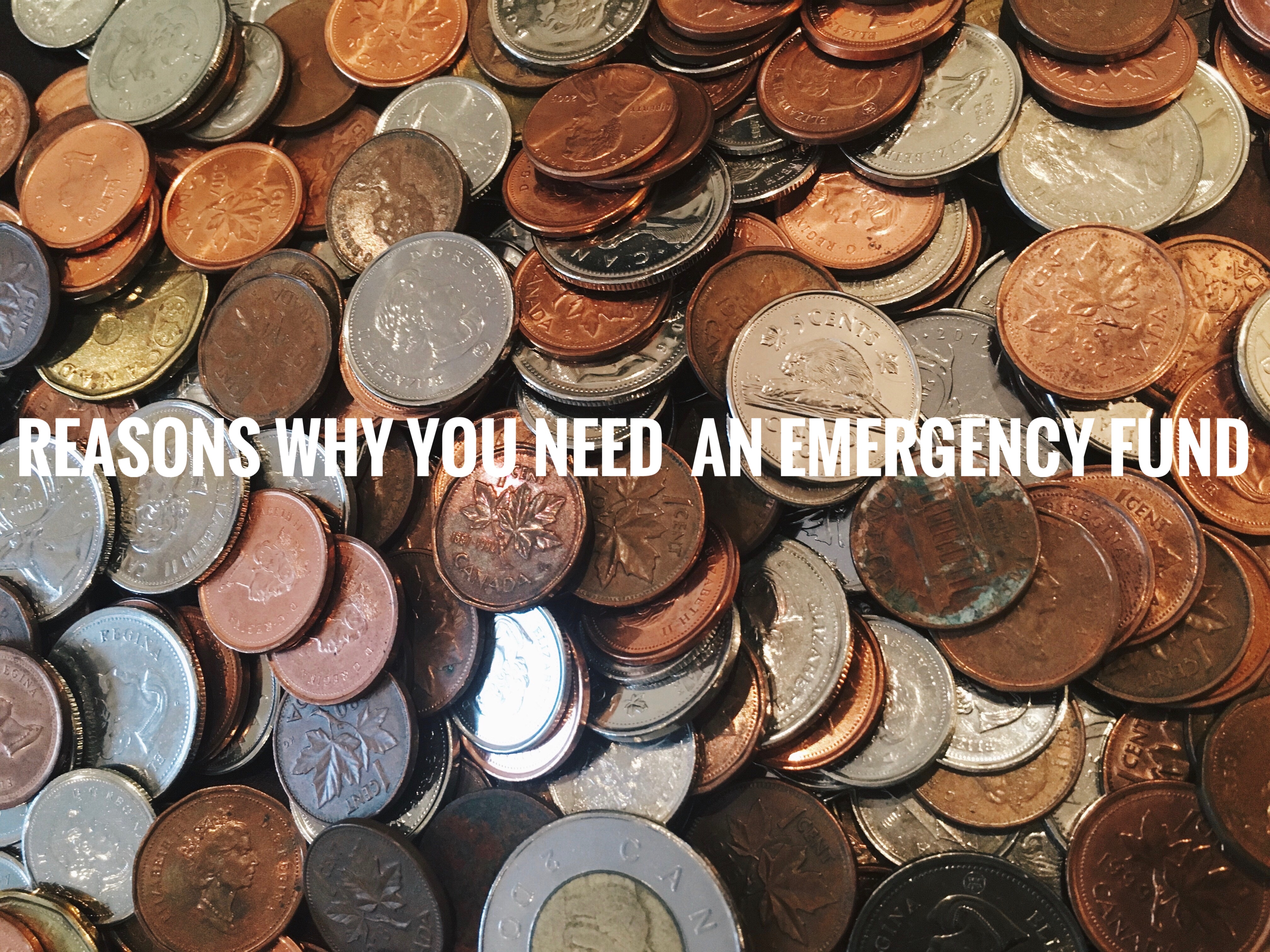An Emergency fund is usually one of the last things on the list of financial priorities. We often don’t ever think about setting money aside for ” just in case situations.”
I remember growing up and feeling excited when my mother would give me money to go to the corner store and buy a treat for myself. My mother would always say, ” don’t spend it all at once, save some for a rainy day.”
I never understood what she meant by that until later in life. It finally made sense in my early twenties when my first car broke down on me at the side of the road. This put me into panic mode. Growing up, we are taught life lessons that we don’t even realize are lessons until we can understand the fundamentals and the importance of savings.
Why is an emergency fund important?
Emergency funds are essential for those “rainy days.” An emergency fund is savings that you set aside to help pay for unexpected expenses. We will most likely have to deal with an emergency resulting from unforeseen situations or a drop in income at some point in your lifetime.
Emergency funds help to improve your financial situations by decreasing your need to have to use high-interest credit cards and unsecured debt.
There are several reasons why you should budget for and have an emergency fund. The most common are the following:
1. Change in Employment Status
Change in employment status can be in the form of job loss, reduced hours, temporary layoffs or even change in a job position. Regardless of what reason it is, a change in employment is one of the top reasons why you need an emergency fund. When you lose your primary source of income, you no longer have the money to pay for things that your regular paycheck would cover. A good rule of thumb is to have a least three to six months worth expenses saved up for this reason.
2. Unexpected Home Repair Costs
Homeownership is such a fabulous feeling. For me, it was a feeling of accomplishment. All is well and dandy until the basement floods or the furnace quits, or you need roof repairs or anything that makes you feel like you don’t want to be adulting anymore! I have experienced all these unexpected costs (thank goodness it wasn’t at the same time). Hefty repair costs can shatter your financial plan. Having that extra stash of cash to help relieve the stress in these types of situations helps a whole lot!
3. Medical and Dental Bills
We try our best to stay healthy, but as we know our health is not a guarantee. We never think to set aside money for unexpected medical costs. Living in Canada, we are fortunate that we have hospital and doctors visits covered, but not everything is taken care of. Things such as prescription drugs and dental visits are not included unless you have a personal plan. So, for this reason, it is important to also factor in medical costs into your emergency fund savings as well.
4. Auto Repair Bill
Auto repair bills can be another gouge in your financial pot. As I mentioned earlier, my first experience with unexpectant car repair happened when I was in my early twenties. I was not a good feeling, let me tell you. Depending on what repair is needed, auto repairs can be very daunting. Setting money aside for out of the blue expenses can take you a long way.
Unexpected expenses should not be confused with occasional expenses such as shoe or shoe shopping ( for my shopaholics), back to school supplies, winter tires or holiday expenses. Occasional expenses should already be incorporated into your budget.
Think of an emergency fund as a spare tire. It is never a good feeling to get a flat, but you very thankful that the tire is there when you need it. An emergency fund is that spare tire in unexpected circumstances.
Not sure what your estimated emergency fund should be? Try using this emergency fund calculator to give you an idea. Click here to try it out.
If you want to avoid getting into debt, then an emergency can help you avoid this. You will be extremely happy that you planned for it!
![]()
